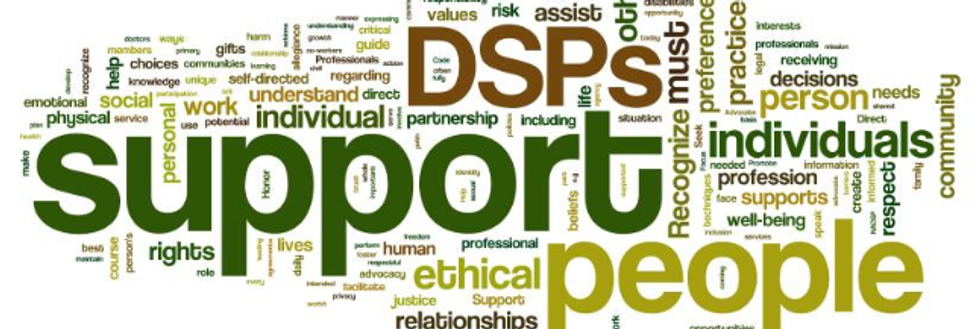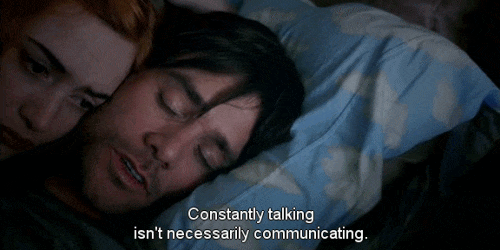When I apply for jobs, I approach it from a few different angles. Have I had experience in this field before? Do the workers look like they hate their lives? Would I enjoy it? But the most important thing is what would I could learn from a job.
After switching my college major three times, I have finally found something I strive for: a career in teaching. Unfortunately, finding a job as a teachers assistance, aide, etc. was difficult for me. Some job searches later, I found a job opening for a DSP- direct support professional. Hesitantly, I filled out an application, went to the interview, and got placed in a residential home for adults with a variety of special needs.
It was a rocky first few weeks, as the only special needs individuals I had ever interacted with were people with down syndrome. The disabilities I was exposed to in the house opened my eyes to a whole new world.
I've had this job for almost two years now, and I can honestly say it has changed my life in ways I can't easily put into words. Saying that, I am going to give it a good try.
I learned that communication is precious. I have always valued words, in either written or spoken form. I remember having laryngitis in high school, and being unable to talk for a week. It. Was. Horrible. How was I supposed to talk to my friends? How could I let someone know that my milk was warm? The inability to communicate stressed me out.
You may have heard that 93 percent of communication is non-verbal. I never realized how true this was until I started working with adults with profound and severe needs. At first I struggled with the idea of non-verbal communication. How was I supposed to know when they needed food or when they were cold or unhappy? It was all very confusing.
After about a week, I spent a few days hanging out with some friends and was so surprised by what I saw. I saw one friend flaring her nostrils when she was annoyed and another shrug her shoulders when her back bothered her. And it made me truly grasp that when you truly pay attention to someone--past spoken words--another level of connections opens up. And I also realized that you can learn a lot about someone from what they don't say.
I can now say that I am fluent in "my peeps"- the individuals I work with. I can tell you what colors they like (mostly bright, vibrant colors though one lady is partial to black), what foods they hate, and what music they like (one lady is very into Coldplay right now, which I fully endorse.) I've learned so much about communication from those who are unable to speak.
I understand how much more I feel now compared to the me of last year. Just like any job, there are good points and low points. I can say with complete honesty that I have found my people and future career. The good points vastly outnumber the bad points. However, when the bad hits it isn't a just a slap to the face.
It's seeing someone with no family celebrate Christmas alone. It's not being able to tell someone that a family member has a fatal illness because they can't process it mentally. It's becoming someone's rock, their person, and knowing you will have to move on in seven months and 13 days- and they won't understand why you left.
Not only is it emotionally draining, it's physically demanding. I left work today with some scratches deep enough to scar. Just adding to the collection I already have. And don't get me started on getting your hair pulled. It isn't pleasant, let me tell you. (You do get used to the physical aggression after a while. I tell my friends and family it is "just a job hazard.")
I have learned the importance of advocacy. For so long, individuals with special needs weren't allowed to make their own choices regarding their lives. Their education, living situation, etc. was all chosen for them. Now, don't get me wrong; there are many situations where it is appropriate to help individuals make these decisions. When I am speaking of advocacy, I mean speaking for those who can't.
Making sure what individuals truly need is important; but making it known what they want is just as necessary. You need to be prepared to tell people that an individual likes music and that they should go to this play. Being aware of everything around you, educators might call it "with-it-ness," helps these individuals make their desires known.
Along with this, is knowing when to step in when you see that something isn't right. You need to learn to step up for people with no voice when you see them mistreated.
This is something that everyone should strive to learn.
I've learned that I am much more patient. When you have several individuals asking for your attention at one time, making random noises, and alarms going off, it can give someone a migraine. Learning compartmentalization was critical for me, as well as realizing that I am fully in charge of how I handle my environment. I can make a choice: do I raise my voice in frustration when something goes wrong, or do I take a step back and breathe?
While my patience has grown, my capacity for love has exceeded my expectations. I have always been an empathetic and affectionate human. But I don't know if any of my experiences can top the moment when someone nonverbal recognizes your voice for the first time- and then finds you and smiles. Even now it makes me teary.
I know "typical" people often look at individuals with disabilities and get nervous, not knowing what to say or if they should interact with them. I know, because I used to be that person. My advice to you is don't be nervous or scared. These individuals are fundamentally just like you and me: they want love, good food, and comfort. (Much like a hobbit actually, which is something we should all strive for.)
So next time you see someone non-verbal in Walmart, interact with them somehow; give them a wave or a smile. Acknowledge their prescence. If you open that door, I can't write a list big enough showing all the wisdom you will gain.






















